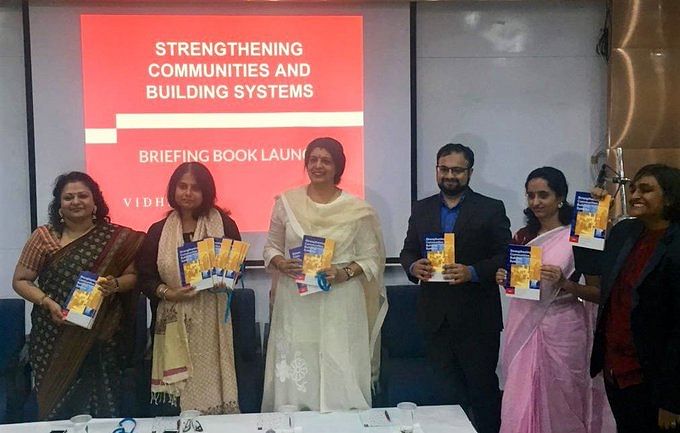
Unless Karnataka takes up legal reforms sooner, especially in 15 key sectors, it could lag behind in development compared to other states in the south, a new report has cautioned.
The report titled 'Strengthening Communities and Building Systems', released by think tank Vidhi Centre for Legal Policy on Sunday, covers a raft of laws covering the state’s education ecosystem, women's empowerment, public libraries, child sexual abuse, urban development, data governance, better governance to name a few.
“Karnataka may have the fourth highest per capita Gross State Domestic Product (GSDP) in the country and the third highest increase in Human Development Index in the last three years, but these do not tell the full story because it lags behind the other southern states in health and education," said the authors of the report.
To Alok Prasanna Kumar, senior research fellow at Vidhi and one of the authors of the study, sustainable development in Karnataka is possible only through strengthening communities and empowering individuals.
This is not the first time Vidhi has published a framework for laws to be reformed. Last year, its first edition prompted the adoption of three legal reforms by the government, according to Kumar.
“This year, we are hoping to better our strike rate and perhaps get six of our proposals under consideration,” he said.
Among the proposals is an amendment of the Karnataka Education Act, 1983, making it mandatory for schools to teach children the difference between 'good touch and bad touch', in order to enable better reporting of child sexual abuse cases.
Another proposal involves introducing more stringent regulation of private university education in Karnataka, to improve the quality of education, while yet another seeks to address the widespread under-funding of public libraries despite collection of cess.
“In Bengaluru, the BBMP has collected Rs 400 crore (cess) but failed to release it to the Department of Public Libraries... We have seen a consistent pattern of local authorities sitting on library cess just to show that they have funds, even though they are supposed to pass it on to the libraries,” Kumar said, adding that one way to rectify the problem was to have the government disburse the cess as a tied grant to be spent specifically on libraries.
One of the proposals seeks the government to release the voluminous data its various departments have been accumulating, anonymise them and share them with researchers.